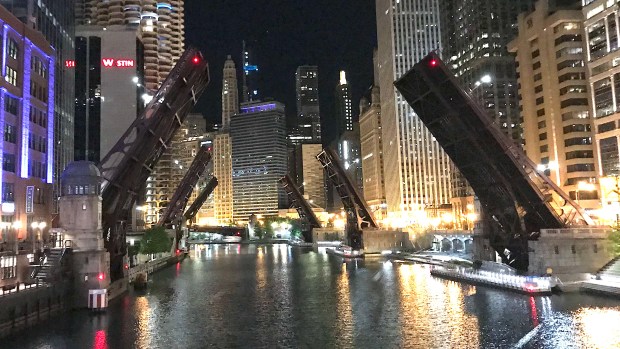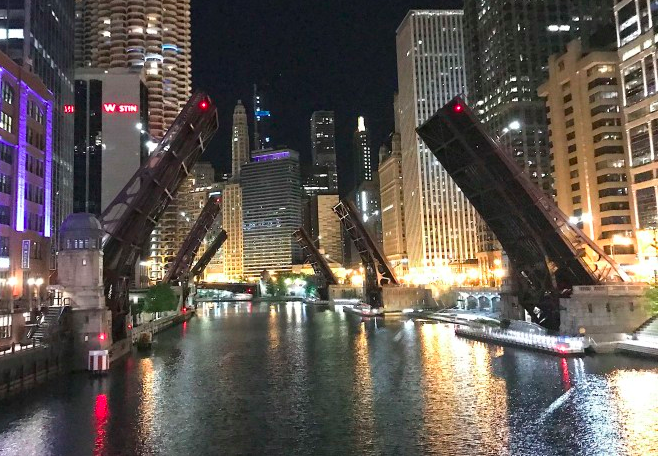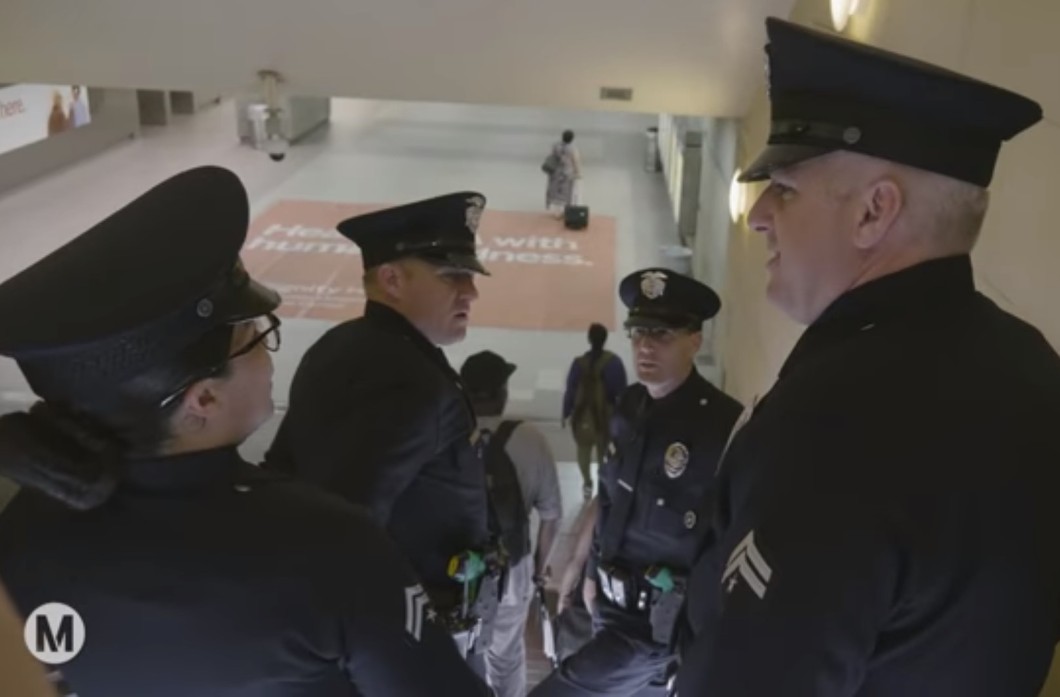
The nationwide protests that started this weekend were born out of anger regarding systemic racism. Unfortunately in light of these protests, Chicago Mayor Lori Lightfoot has that decided austerity for our most vulnerable is the best response from the city.
Yesterday Mayor Lightfoot instituted an exclusion zone around downtown, bounded by North Avenue, Halsted / Canal streets, 31st Street and the lake. People who do not live or work downtown were not allowed to enter this area unless doing essential business. Along with the exclusion zone, there were transit service suspensions for a large swath of the city; between the lakefront and Western from Fullerton Ave to 47th Street. Hours later all of the region’s public transportation systems were out of service: CTA, Pace, Metra, and Divvy were unavailable.
People were given very little warning of the transit closures. There were reports on social media that people had been turned away from CTA stations and buses had stopped running at least an hour before the city made the announcement. In a city where plenty of people’s transit commutes are well over an hour, it was incredibly irresponsible to suspend service with little warning. CTA ridership is largely made up of low-income and working-class residents, and people of color. These are the people who were most impacted.
Hours later the city shared that Uber was offering $5 off of rides. According to the Active Transportation Alliance’s “Fair Fares Chicagoland” report, twenty percent of CTA riders make under $20,000 a year. In light of the additional economic insecurity for many people in the time of COVID-19, even a discounted Uber ride may inaccessible. Additionally, ride-hail puts people at an increased risk for COVID-19 transmission, since it is essentially impossible to social distance inside a car.
Today, transit service is still operating at a reduced capacity. The following is a list of suspended service as of this morning
- Metra service is not operating
- Pace is not serving downtown Chicago, including their I-55 Express service
- CTA buses were not running within the zone bounded by the Lakefront, Western, Fullerton, and 47th Street
- Red Line trains were not running between Belmont and 47th St.
- Blue Line trains were not running between Western (Forest Park) and Western (O’Hare)
- Brown Line trains were not running between Belmont and the Loop
- Pink line trains were not running between the Loop and Western
- Green Line trains were not running between California and Garfield
- Orange Line trains were not running between the Loop and 35th/Archer
- Purple Line trains were not running between Belmont and the Loop
- Divvy service is suspended
These service disruptions will negatively impact those who rely on transit for essential activities such as getting to grocery stores, pharmacies, and medical appointments, and will make the commutes of essential workers even more difficult. The Active Transportation Alliance condemned these closures in a statement yesterday night: “We cannot achieve public safety by restricting freedom of movement.” The disruption of these services reads to me as a way to punish the most vulnerable. These shutdowns are inequitable and irresponsible.
In the midst of transit service cuts, Chicago Public Schools was unable to provide free meal pick-up for children facing food insecurity. If you have the ability to assist with food distribution by bike, Bike Lane Uprising is assisting with connecting volunteers to organizations who could use a hand. You can also check with your aldermen to see if they are able to connect you with organizations in your ward. Lastly, you can donate to organizations providing mutual aid to Black Chicagoans. These particular organizations are close to my heart:






